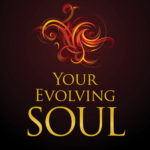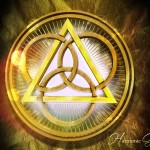Talking points

Your Evolving Soul offers a creative interpretation for the postmodern world of the Urantia Book’s advanced spiritual teachings. To clarify its revolutionary ideas, author Byron Belitsos compares the UB’s teachings with today’s developmental psychology, Jung’s concept of individuation, Ken Wilber’s integral psychology, and contemporary paranormal studies. The author also finds important parallels between the UB’s concepts of the self and similar ideas in ancient Gnosticism, traditional Christianity, and Buddhist psychology—while also showing how the revelatory UB offers corrections to the errors of the past.
POINTS OF EMPHASIS:
Revelation for our time: Why a “revelation” at this time? Supernatural revelation is a natural feature of evolution. But epochal revelation is timed for periods of great travail.
We are all soul-makers: The human soul is an akashic personal record of our “soul memories.” It represents the energetic harvest of our meaningful personal decisions. Most soul growth is unconscious, but we can also engage in conscious soul-making.
The “sacred triad” of selfhood: We can better understand soul-making if we apportion three distinct aspects of self: (1) the soul, (2) the indwelling sprit, and (3) the unique personality. If we conflate any of these, we cannot fully understand the soul.
Contribution of NDE study to a theory of the soul: About a fifth of NDErs report having a panoramic “life review.” This fact points to the idea that the soul is a repository of the most significant experiences of a person’s lifetime—as the UB also teaches.
Dimensions of soul-making: Quantitative soul-making (extensive life experience) can be contrasted with qualitative soul-making (intensive felt experience). Jesus, as depicted in the UB, engaged in both of these dimensions in a balanced and symmetrical way.
Universal Buddhahood and the path of self-perfecting: One day we will achieve perfection as finaliters—an exciting term coined in the UB to refer to our future destiny in the afterlife as perfected beings. All who survive death will one day achieve “God fusion” when the evolving personal soul fuses with the immortal indwelling spirit.
Traditional theories of soul and spirit, East and West: In the traditions, the soul is rarely described as evolutional—nor is it clearly distinguished from other aspects of self, such as the indwelling spirit or the personality. The UB clarifies that the indwelling spirit is an existential divine gift and that the experiential soul evolves through its guidance.
Integral theory and the UB: Ken Wilber’s ideas about human development—especially the quadrants, states, lines, and levels of consciousness—have uncanny parallels to the UB’s depiction of self and soul. The UB can be seen as an “integral revelatory text.”
The human soul as the determining factor in cosmic evolution: The evolutionary import of human experience is the crucial factor in Urantia cosmology. Indeed, soul evolution and self-perfection through human decision-making is revealed to be, in part, the secret of the space-time creations. Evolution is the dance of eternity with time.



